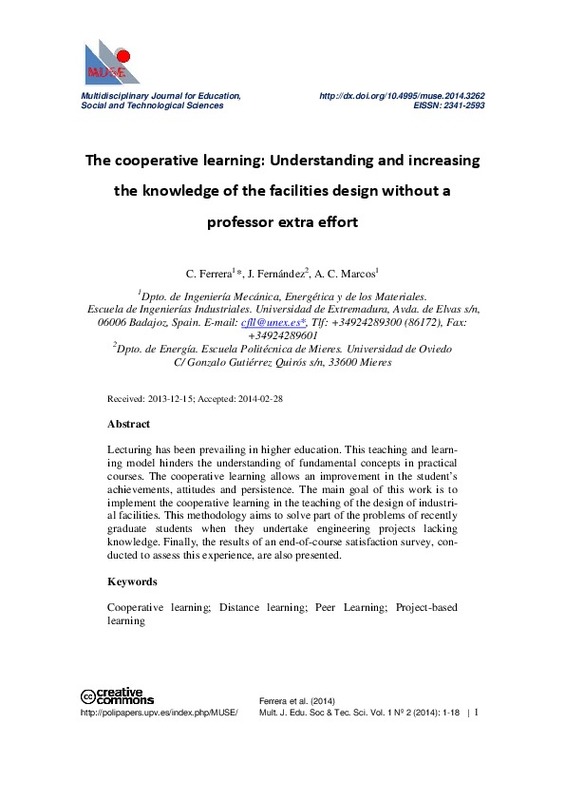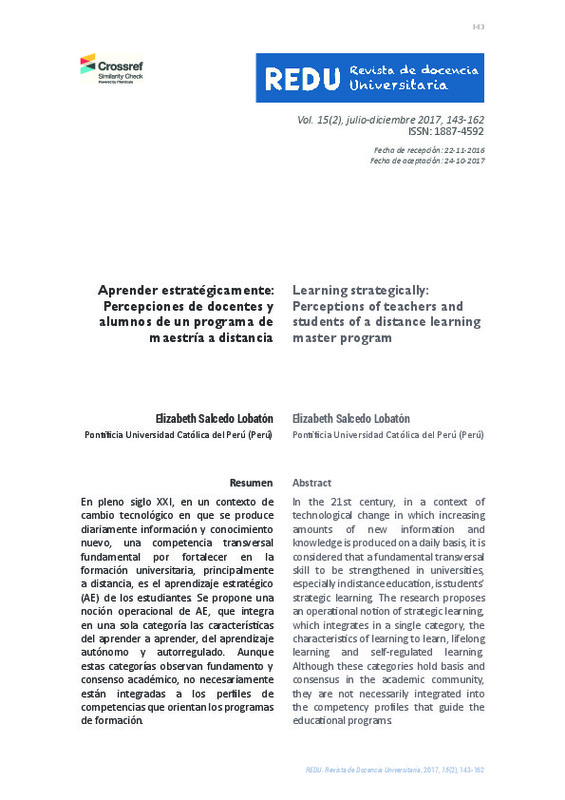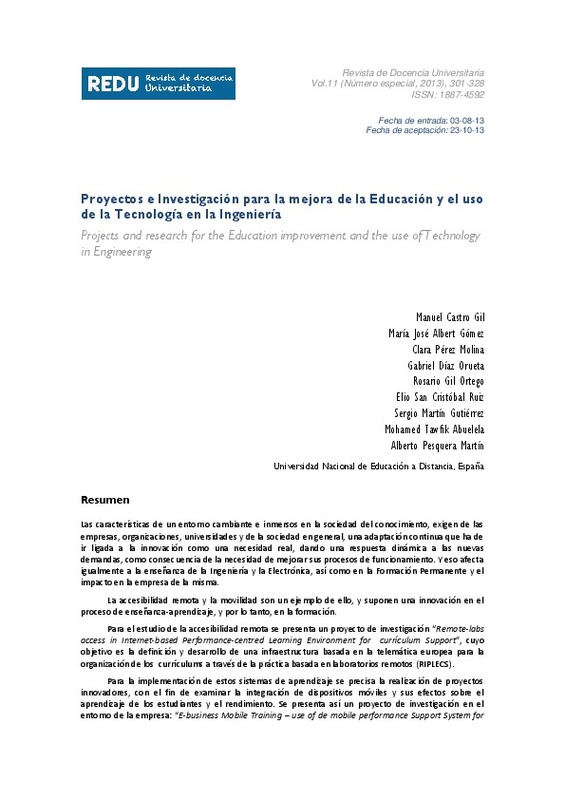Aubert, A., Flecha, A., García, C., Flecha, R. and Racionero, S. (2008). Aprendizaje dialógico en la sociedad de la Información. Barcelona. Ed. Hipatia.
Aubert, A., Medina, A. and Sánchez, M., (2000). De las agrupaciones flexibles a los grupos interactivos. VIII Conferencia de sociología de la educación, Madrid, Espa-a.
Castells M., Flecha, R., Freire, P., Giroux, H., Macedo, D. and Willis, P. (1994). Nuevas perspectivas críticas en educación. Ed Paredes.
[+]
Aubert, A., Flecha, A., García, C., Flecha, R. and Racionero, S. (2008). Aprendizaje dialógico en la sociedad de la Información. Barcelona. Ed. Hipatia.
Aubert, A., Medina, A. and Sánchez, M., (2000). De las agrupaciones flexibles a los grupos interactivos. VIII Conferencia de sociología de la educación, Madrid, Espa-a.
Castells M., Flecha, R., Freire, P., Giroux, H., Macedo, D. and Willis, P. (1994). Nuevas perspectivas críticas en educación. Ed Paredes.
Chickering, A. W. and Gamson, Z. F. (1987). Seven principles for good practice in undergraduate education. Wingspread Journal.
Dale, E. (1946). Audio-visual methods in teaching. New York: The Dryden Press.
Downing, C. E. and Liu, C. (2012). Getting Students to Teach Each Other: Doing More with Less in IS Education Journal of Information Technology and Application in Education Vol. 1 Iss. 4, 195-206.
Flecha, R., Lloret, C. and García, J. M. (1977). Transformemos la escuela. Ed. Renacimiento.
Flecha, R. (1997). Compartiendo palabras. El aprendizaje de las personas a través del diálogo. Ed. Paidós Ibérica.
Lewis, K. G. (1994) Teaching Large Classes (How to Do It Well and Remain Sane), Chapter 25 in Handbook of College Teaching, edited by K.W. Prichard and R.McL. Sawyer. Westport, Conn.: Greenwood Press.
Luzuriaga, L. (1977). Historia de la educación y la pedagogía. Ed. Losada.
Mazur, E. (1992). Qualitative vs. Quantitative Thinking: Are We Teaching the Right Thin?", Optics and Photonics News.
Mazur, E., & Hilborn, R. C. (1997). Peer Instruction: A User’s Manual. Physics Today, 50(4), 68-69. doi:10.1063/1.881735
Michaelsen, L. K., (1983). Team Learning in Large Classes. Chapter 2 in Learning in Groups, New Directions for Teaching and Learning series, 14. San Francisco: Jossey-Bass.
Michaelsen, L. K., Knight, A. B. and Fink, L. D. (2003). Preface. In L. K. Michaelsen, A. B. Knight, & L. D. Fink (Eds.), Team-based learning: A transformative use of small groups, (pp. vii-xi). Westport, CT: Praeger.
Nyquist, J. D., Abbott, R. D., Wulff, D. H. and Sprague, J. (1991). Preparing the Professorate of Tomorrow to Teach: Selected Readings in TA Training. Kendall/Hunt.
Paris, S. G. and Turner, J. C. (1994). Situated motivation. In P. R. Pintrich, D. R. Brown, & C. E. Weinstein (Eds.), Student motivation, cognition, and learning: Essays in honor of Wilbert J. McKeachie (pp. 213-238). Hillsdale, NJ: Erlbaum.
Saye. D. (1997). An alternative technique for teaching mathematics: students teach. Proceddings of the 23rd AMATYC Annual Conference Atlanta, USA.
Sheetz, L. P. (1995). Recruiting trends: 1995-1996. East Lansing, MI: Collegiate Employment Research Institute, Michigan State University.
Smith, F. (1998). The book of learning and forgetting. New York: Teachers College Press.
Stanly, C. and Porter, M. E. (2002). Engaging Large Classes: Strategies and Techniques for College Faculty . Onker Publishing.
Sugata, M., Dangwal, R., Chatterjee, S., Jha, S., Bisht R. S. and Kapur, P. (2005). Acquisition of Computer Literacy on Shared Public Computers: Children and the "Hole in the wall". Australasian Journal of Educational Technology, 21(3), 407-426.
Redish, E. F. (2003). Teaching physics with the physics suite. John Wiley & Sons.
Weimer, M. (2002). Learner-centered teaching: Five key changes to practice. San Francisco: Jossey-Bass.
Winchester-Seeto, T. (2002). Assesment of collaborative work-collaboration versus assesment. Invited paper. Annual Uniserve Science Symposium. University of Sydney. Australia.
[-]











